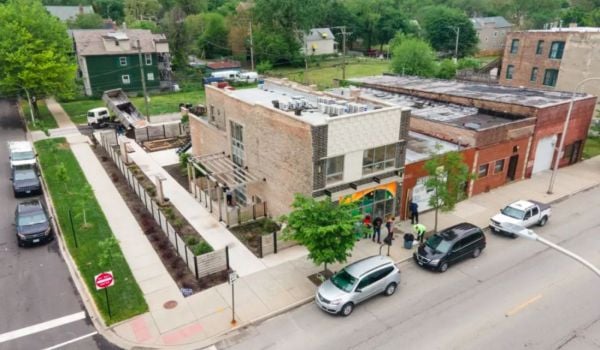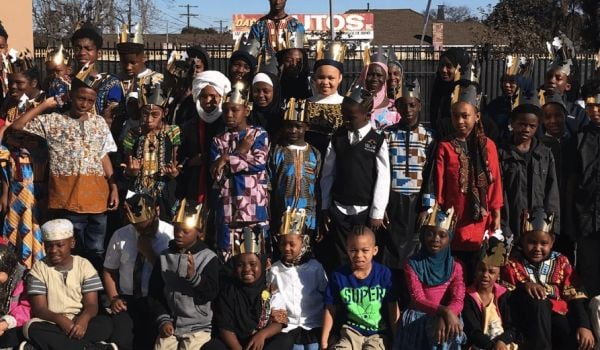When the Brooklyn Community Foundation (BCF) announced in early November that it would divest from private prison companies, predatory lenders and the gun manufacturing industry, President and CEO Cecilia Clarke explained the decision by referencing a specific strategy, one heavily influenced by residents of the neighborhood BCF calls home.
“Racial equity is core to our vision of a fair and just Brooklyn,” said Cecilia Clarke, president and CEO, in a statement announcing the decision. “Private prisons, gun manufacturers, and predatory lenders are three industries that have had a devastating impact on communities of color and low-income communities in our borough and across our nation.”
Indeed, The Sentencing Project has determined that, for U.S. residents born in 2001, one in three black men and one in six Latino men will end up in prison, compared with one in 17 white men. One in 18 black women, one in 45 Latina women and one in 111 white women will end up in prison. People of color make up 37 percent of the country’s total population, but 67 percent are behind bars.
In the years leading up to the subprime mortgage crisis, lenders clearly targeted communities of color with predatory loans, issuing high-cost loans to 58 percent of low-income black borrowers and to 37 percent of low-income Latino borrowers, as compared to only 28 percent of low-income white borrowers.
Black and white populations live in completely different worlds when it comes to gun violence. Black victims still make up a disproportionate share — 55 percent — of gun homicides.
While BCF’s $60 million in assets is a modest sum, foundations overall in the U.S. currently account for some $865 billion in assets overall. They give away around $60 billion a year, and invest another $325 million or so each year in impact- or mission-driven investments seeking social as well as financial returns. So the vast majority of foundations’ assets are invested in stocks, bonds, real estate and other investments meant to deliver a healthy return to maintain or grow their endowments — investments that may run counter to the mission of a foundation that holds them.
Larger foundations have come under fire for some of the investments they hold in their endowments, such as the Gates Foundation’s investment in GEO Group, the second-largest private prison company in the U.S. When pressed to divest a few years ago, the Gates Foundation replied selectively with talking points that might be described as awkward at best.
BCF’s divestment decision came as part of ongoing discussions and strategic shifts the foundation has been making since 2014, after a six-month listening exercise involving over a thousand Brooklyn residents. Racial justice emerged as a central theme.
“If we are going to move forward and make Brooklyn a more fair and just place, we had to talk about racial justice,” says Clarke.
The foundation created a racial justice council, and one of the group’s first tasks was to examine its own funders. “They asked ‘what is the demographic of our donor base.’ It’s white,” says Clarke. “They called us out on that.”
The council is also helping to think through the grantmaking process, from the wording of requests for proposals to ongoing relationships with grantees. The foundation now encourages current and potential grantees to incorporate racial justice into their work.
Grantee selection came under the microscope too.
“One area we’re looking at is rewarding nonprofits that are run by impacted communities, people of color, who represent the affected constituency, which have shown time and time again that is what serves those communities the best,” says Clarke. In the foundation’s youth portfolio, which it launched in 2014, Clarke estimates between 60 and 75 percent of grantees are run by people of color — essential in a borough that is 64 percent people of color.
Like most community foundations, Brooklyn Community Foundation manages donor-advised funds, which allow people to get the tax benefit from donating money to charitable causes without having to choose a specific cause or organization right away. The foundation has 41 donor-advised funds right now, and only one comes from a person of color, Clarke admits.
The divestment decision was a natural outgrowth of those discussions. “It was a decision on the part of the board to really think about racial justice as a priority,” Clarke says.
Discussions with donors and grantees are also moving the foundation into work that most donors and foundations prefer to avoid, such as advocacy. The foundation has made recent grants in support of organizations or funder pools behind campaigns to close Rikers Island and to raise the age at which youth can be tried as adults in New York state.
“It’s slow work … philanthropy likes shiny new things,” says Clarke. “If you’re in for advocacy, you have to be in for 10 years. But there’s only one way to affect root causes, and that’s through policy change.”
Editor’s Note: This article has been updated to include information provided by the Brooklyn Community Foundation after publication about its donor-advised funds.
The Equity Factor is made possible with the support of the Surdna Foundation.

Oscar is Next City's senior economic justice correspondent. He previously served as Next City’s editor from 2018-2019, and was a Next City Equitable Cities Fellow from 2015-2016. Since 2011, Oscar has covered community development finance, community banking, impact investing, economic development, housing and more for media outlets such as Shelterforce, B Magazine, Impact Alpha and Fast Company.
Follow Oscar .(JavaScript must be enabled to view this email address)

















